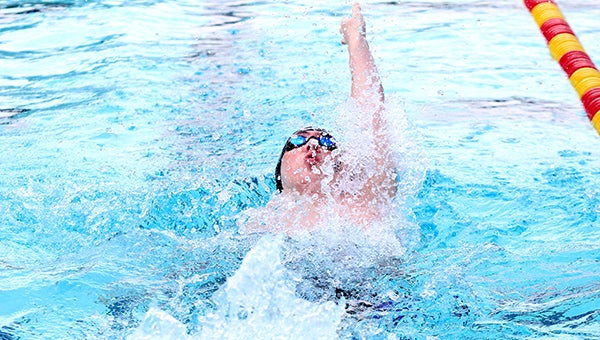Heat stroke, dehydration preventable with proper measures
Published 9:51 am Wednesday, July 6, 2016

- SUMMER STAPLE: While swimming is a great way to relax and cool off on a hot summer day, individuals should aslo remember to properly hydrate their bodies as this summer staple doesn’t replinish nutrients lost through sweat.
The hottest part of the day is when the sun reaches its peak position in the sky between noon and 3 p.m.
With Mississippi recording elevated heat indices this summer, it’s important to stay well hydrated throughout the day, or schedule the time spent outside accordingly.
“When you’re outside, plan breaks and drink water regularly. You don’t need to go outside for two or three hours and not have anything to drink. You need to be drinking every 15, 30 minutes,” said Certified Family Nurse Practitioner Chris Vinson of Merit Health River Region.
Wearing lightweight and lighter-colored clothing help reduce weight and the absorption of the sun’s heat.
Vinson recommended individuals seek shade as much as possible, and if one does begin to feel overheated, they should take a break from whatever they’re doing to cool off. He added that once an individual does step out of the heat, cooling off via a cold shower or bath, or laying on damp sheets near a fan are better ways to decrease the body’s temperature than to jumping in an ice-filled bathtub.
For household tasks such as mowing the grass or gardening, the ideal time would be early morning before the sun reaches its peak position, or later on in the evening when the day becomes cooler.
“Don’t just on a whim decide you’re going to go out and mow the yard or do whatever. You need to plan it out,” Vinson said. “Especially the elderly but it applies to anybody.”
The onset of heat stroke differs based on gender, age and medical conditions, and Vinson said individuals have to pay special attention to their body. Typical warning signs include thirst, confusion, dizziness, accelerated heart rate and breathing, weakness, headaches, vomiting and diarrhea.
Muscle cramps can occur as a result of heat stroke, so foods such as bananas – which are high in potassium – can aide in the body’s recovery.
Vinson said dehydration and heat stroke are like cousins and one doesn’t necessarily have to be dehydrated to suffer from heat stroke.
“A lot of times they do go hand in hand,” Vinson said. “When you go to the (emergency room) they’ll diagnose you with heat stroke if your temperature is over 104 (degrees) and you have some signs of mental changes. But if it’s less than that and you don’t have any mental problems, it’s usually heat exhaustion.”
Seeking a break from summer’s harsh temperatures through swimming has always been a highlight of the season. But, taking a dip in the pool only relieves the bod’s exterior and proper hydration is still needed
“Your skin is waterproof. … It doesn’t mean you’re safe from dehydration,” Vinson said.





